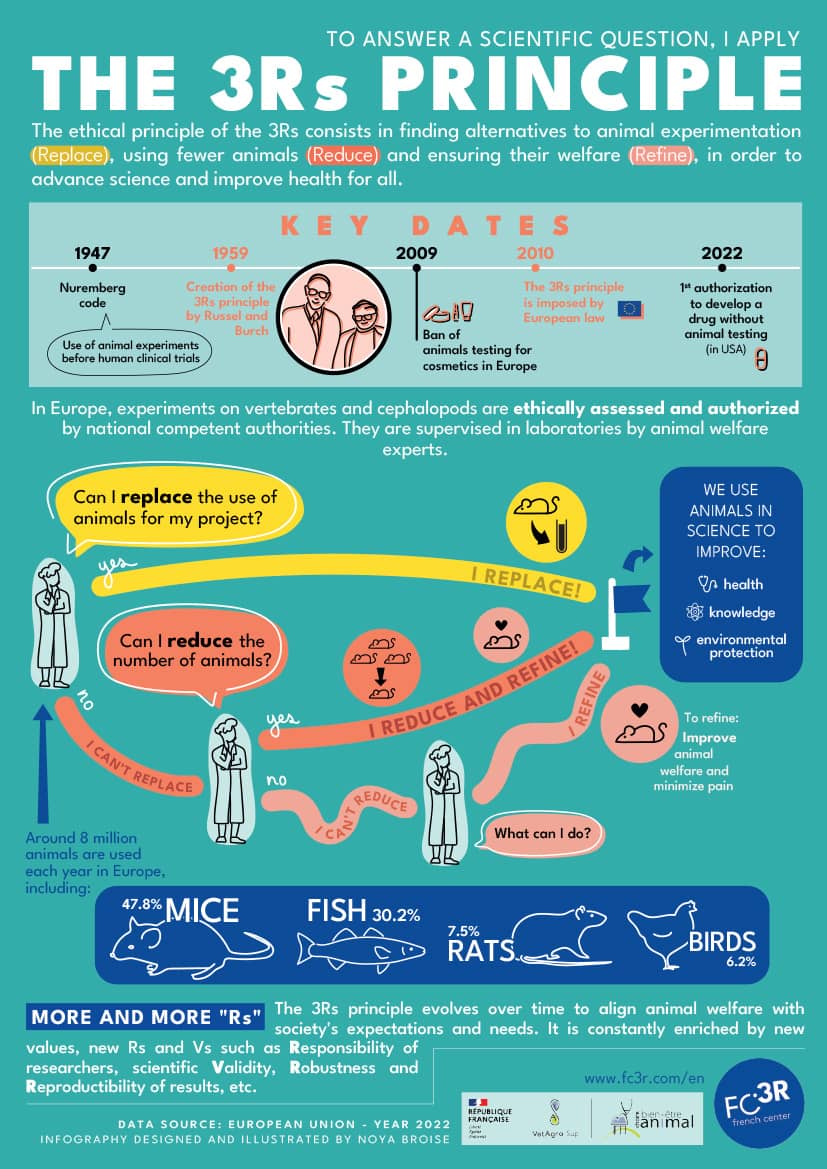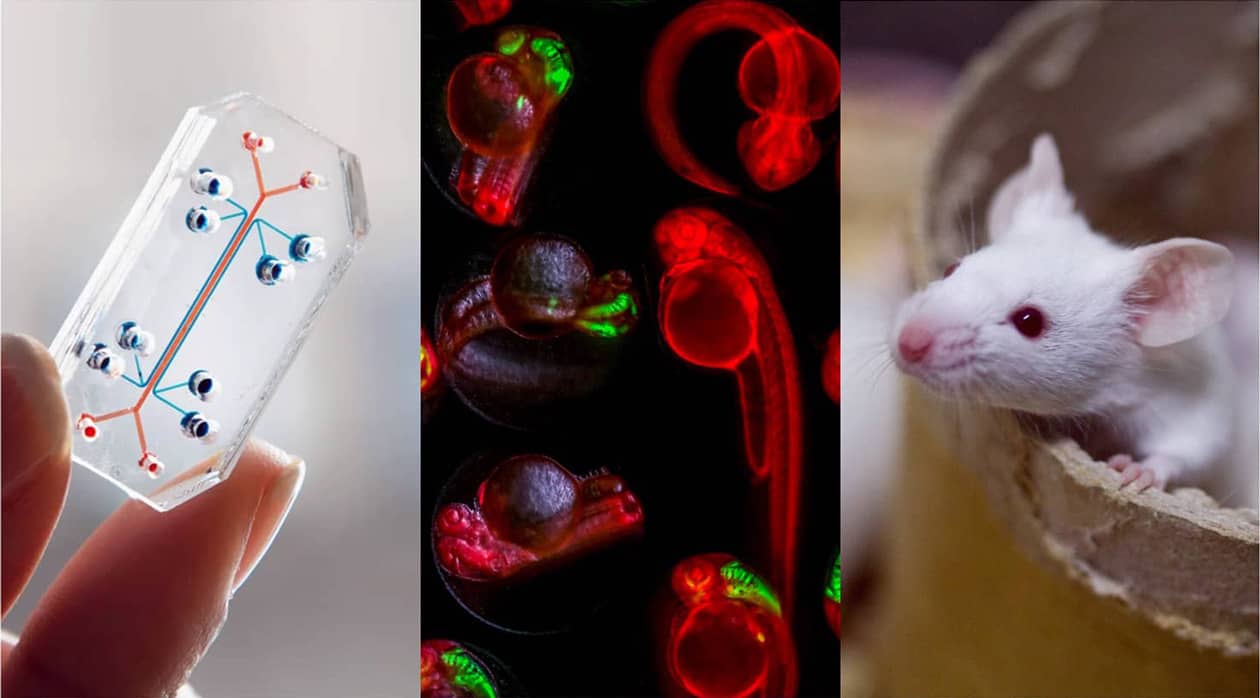
Use methods that replace the use of animals.
-
Read more
REPLACE
Replacement is defined as any method, strategy or approach that avoids the use of animals. Substitution methods are considered total if they do not use animals. This is the case for the following methods:
In vitro: experiments outside the organism, on cell or tissue cultures in 2D or 3D, on organoids, organs on chips or components of subcellular origin (proteins, nucleic acids, etc.)
In chemico: biochemical approaches using recombinant synthetic molecules as proxies for toxicity targets.
In silico: bioinformatic approaches and creation of numerical models using databases from in vivo and in vitro experiments.
However, although they are considered total replacement methods, they still almost systematically involve animals (for enrichment of in silico models), or animal by products (for culture and in vitro experimentation), such as fetal calf serum, extracts of basement membranes or antibodies produced in animals. Total replacement is currently difficult to achieve, and many technological advances are still needed to achieve it.
Replacement methods are said to be relative if:
- They use animals (or developmental stages) that, according to current scientific knowledge, are considered less sensitive to stress and pain, such as the nematode Caenorhabditis elegans, or the fly Drosophila melanogaster,
- They use animals with intrinsic characteristics that allow less invasive experimental approaches, such as external development or tissue transparency,
- They involve the use of cells (primary cultures), tissues or organs taken from animals of authorized species after their regulatory .

Limit the number of animals used to achieve a given scientific objective.
-
Read more
REDUCE
Reduction involves any approach that reduces the number of animals used to achieve the same scientific objective. It aims to obtain the maximum amount of information from one animal to avoid the use of additional animals. For example, imaging studies allow for longitudinal follow-up through repeated measurements on the same animal, avoiding the use of several cohorts of animals at different periods. These repeated measurements should be free of additional stress for the animals.
The number of animals needed for a scientific project is chosen based on a prior statistical study. This analysis should simultaneously reduce the number of animals and provide usable data. However, in some cases, such as in drug safety studies, the number of animals is imposed by regulation.

Ensure and enhance animal welfare.
-
Read more
REFINE
Refinement involves optimizing, in terms of animal welfare, any husbandry and care procedure or practice, from the time the animal is born until it dies. This principle aims to minimize pain, suffering and distress to the animal, and to improve its well being. Refinement calls for adequate analgesia and anesthesia protocols to reduce pain, non-invasive or minimally invasive technologies (such as physiological phenotyping systems, imaging, or telemetry), devices that avoid repeated injections (osmotic pumps), or methods to habituate animals and handle them properly (in tubes rather than by the tail for rodents).



